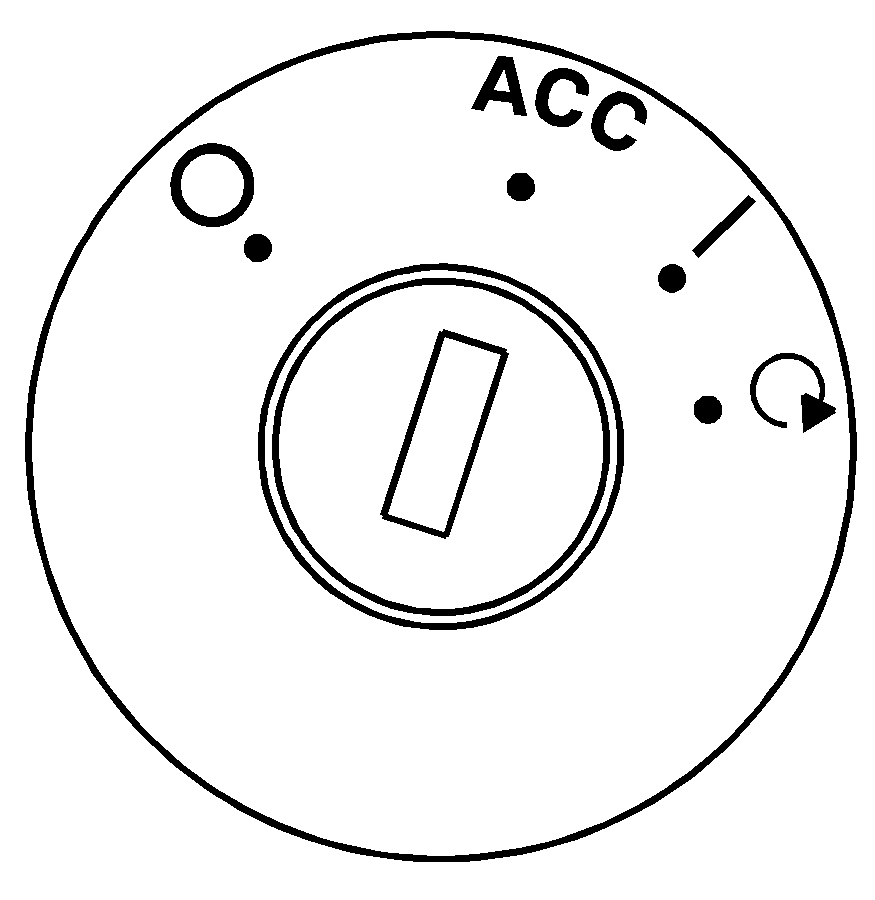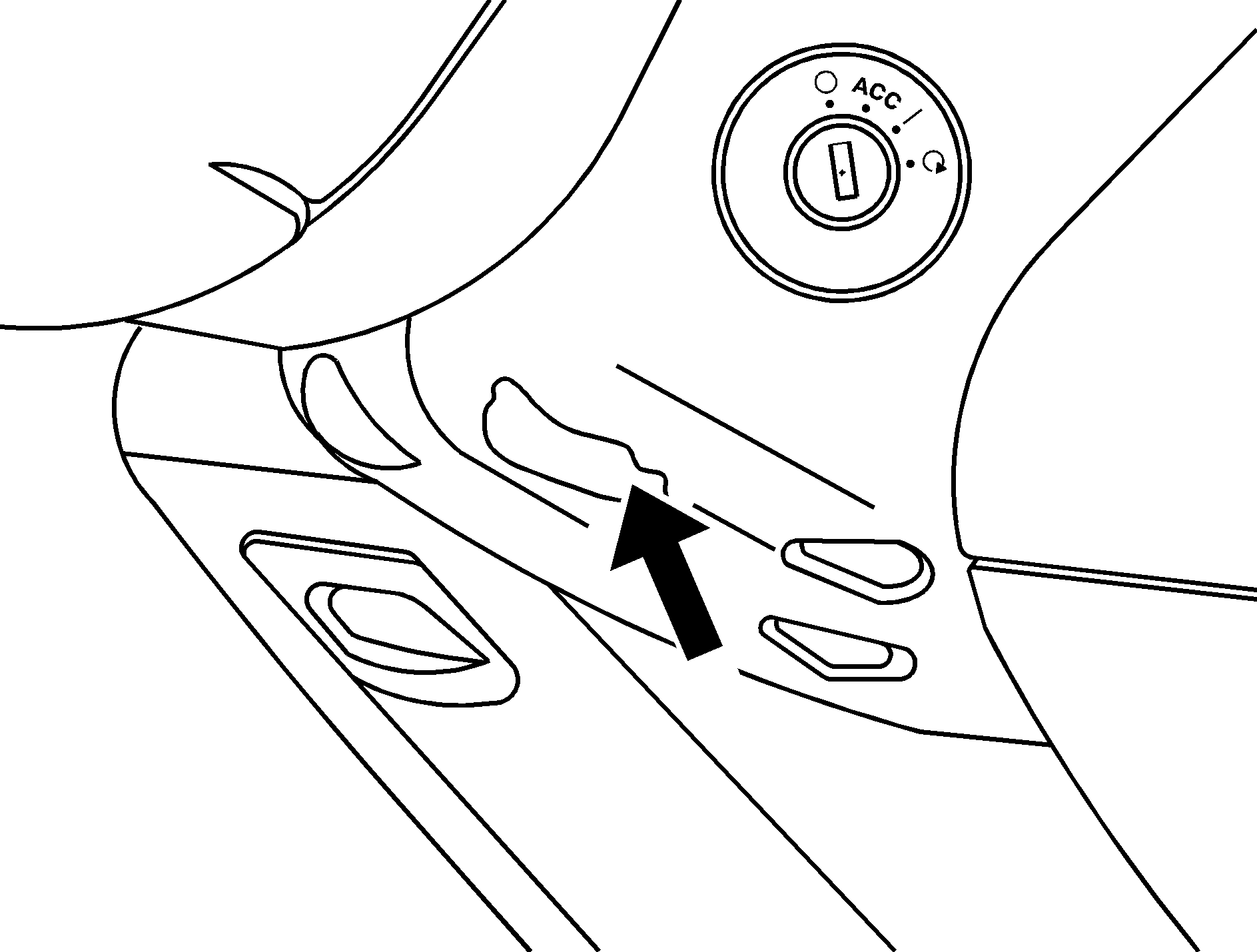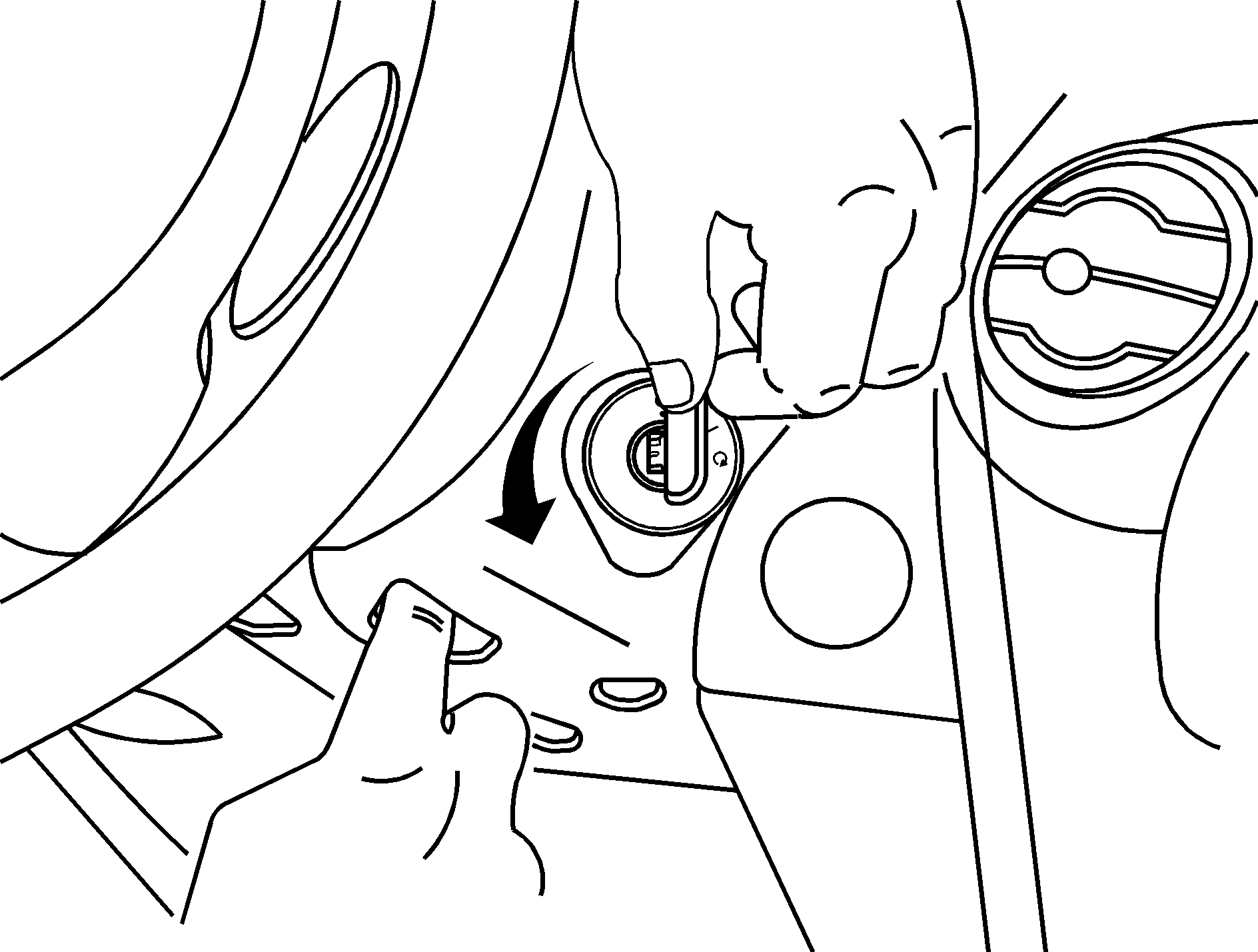With the key in the ignition switch, you can turn it to four different positions.

Notice: Using a tool to force the key from the ignition switch could cause damage or break the key. Use the correct key and turn the key only with your hand. Make sure the key is all the way in. If it is, turn the steering wheel left and right while you turn the key hard. If none of this works, then your vehicle needs service.
(LOCK): This position locks your steering column. It is a theft-deterrent feature. You will only be able to remove your key when the ignition is turned to LOCK. If you have an automatic transaxle, the ignition switch cannot be turned to LOCK unless the shift lever is in PARK (P).Caution: If you have a manual transaxle removing the key from the ignition switch will lock the steering column and result in a loss of ability to steer the vehicle. This could cause a collision. If you need to turn the engine off while the vehicle is moving, turn the key to ACC.
ACC (ACCESSORY): This position operates some of your electrical accessories. It unlocks the steering wheel and ignition.(RUN): This is the position the switch returns to after you start your engine and release the switch. The switch stays in the RUN position when the engine is running. But even when the ignition is not running, you can use RUN to operate your electrical accessories and to display some warning and indicator lights. The battery could be drained if you leave the key in the ACC or RUN position with the engine off. You may not be able to start your vehicle if the battery is allowed to drain for an extended period of time.
(START): This position starts the engine. When the engine starts, release the key. The ignition switch will return to RUN for normal driving. A warning tone will sound if you open the driver's door while in LOCK or ACC, when the key has not been removed from the ignition.
Key In the Ignition
Never leave your vehicle with the keys inside, as it is an easy target for joy riders or thieves. If you leave the key in the ignition and park your vehicle, a chime will sound, when you open the driver's door. Always remember to remove your key from the ignition and take it with you. This will lock your ignition and transaxle. Also, always remember to lock the doors.
The battery could be drained if you leave the key in the ignition while your vehicle is parked . You may not be able to start your vehicle after it has been parked for an extended period of time.
Shift Lock Release
For vehicles with an automatic transmission, the following procedure allows the ignition to be turned to LOCK and for ignition key removal in case of a dead battery or low voltage battery.
- Make sure the shift lever is in PARK (P).
- Using a tool, pry off the cover from the bottom of the steering column.
- Place your finger into the access hole and locate the plunger.
- Press and hold the plunger toward the driver's door while turning the ignition key to LOCK. Remove the key.


Have your vehicle serviced at your retailer as soon as possible.
